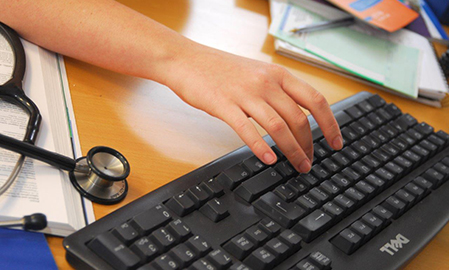Just because patients may lie when providing information for electronic health records, it doesn’t mean that they do not have high expectations for them, as indicated by a Xerox/Harris survey of 2,017 patients.
Medical practices have been encouraged to adopt electronic records, including a $25.8-billion boost that was part of the 2009 American Recovery and Reinvestment Act. Pharmaceutical marketers have also been encouraged to consider tools as a way to capture a physician’s attention by providing patient-specific suggestions during an exam. Xerox’s assessment hints at consumer outreach potential.
The majority of the surveyed 18-and-up patients indicated that they expect EHRs to allow doctors to provide better, more efficient care, and over half—about 53%—told pollsters they “noticed an improvement in my care since my healthcare provider has moved to EHRs.” This outlook dovetails with the Office of the National Coordinator for Health Information Technology’s expectations that EHRs can improve patient care, increase patient participation and save money.
Despite this positivity, Xerox’s data indicate that EHR optimism may need to be dialed back, because just 30% of surveyed patients are aware that healthcare providers are using digital records, even though 63% told researchers that their physicians used computers or other devices to take notes during visits.
Patients indicated that online access to their medical records could make them more engaged in their health, but that they are only interested in clearly valuable information: 41% said they would be interested in personalized health-improvement information, while only 21% would consider an EHR littered with general health information worth a read.
Patients indicated they were interested in EHRs as a means of gaining more one-to-one physician access: 55% said they would like to use EHRs to ask doctors questions, 56% wanted to use them for refill requests, and 36% said it would be a valuable way to request referrals.







